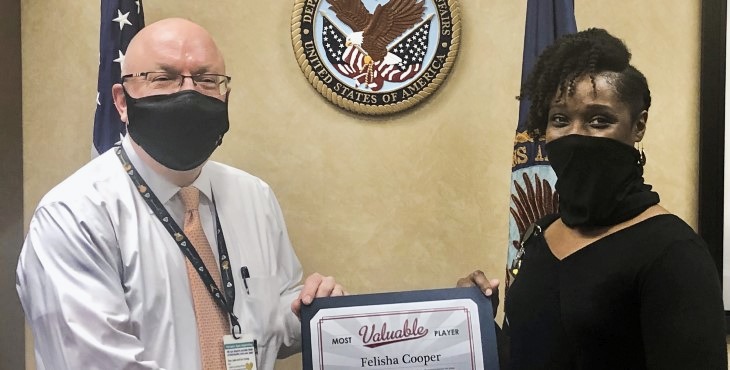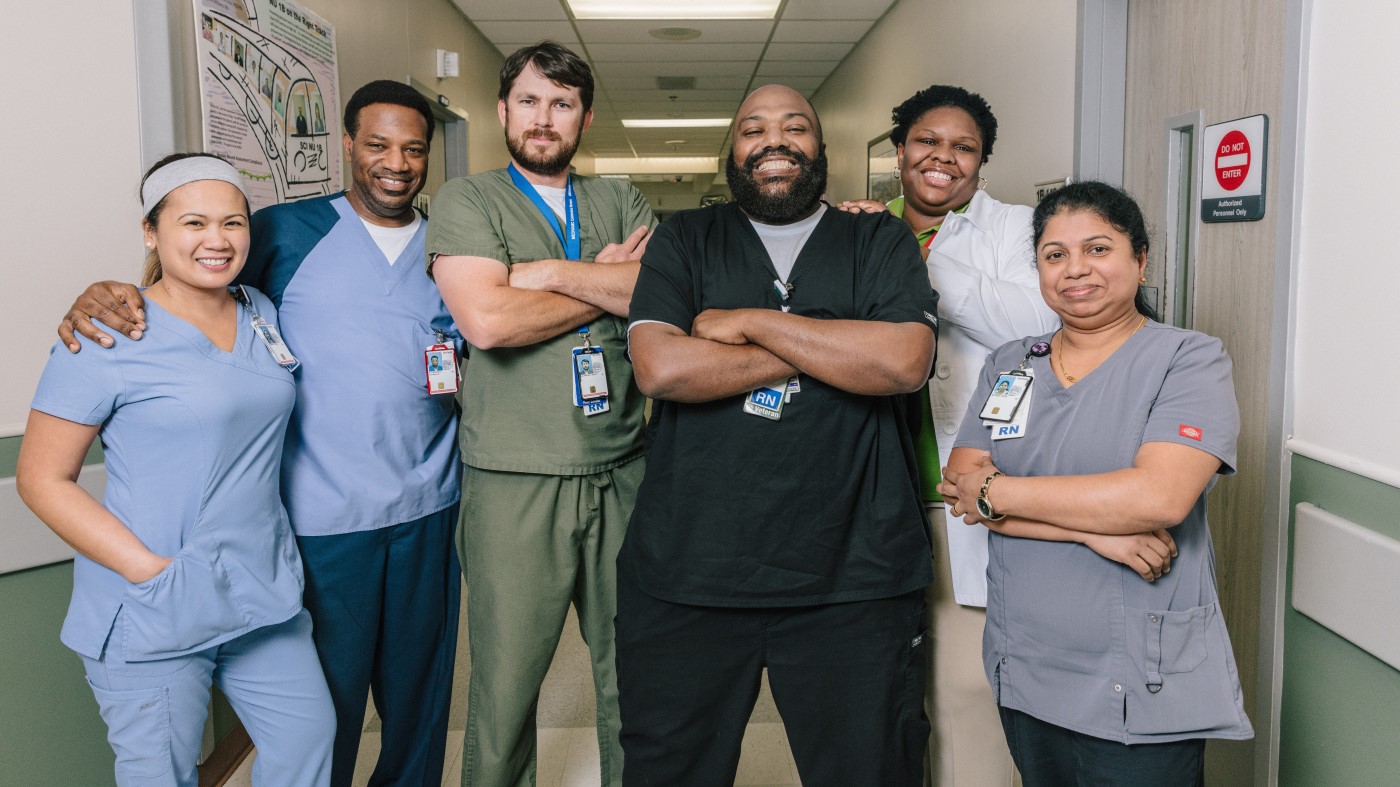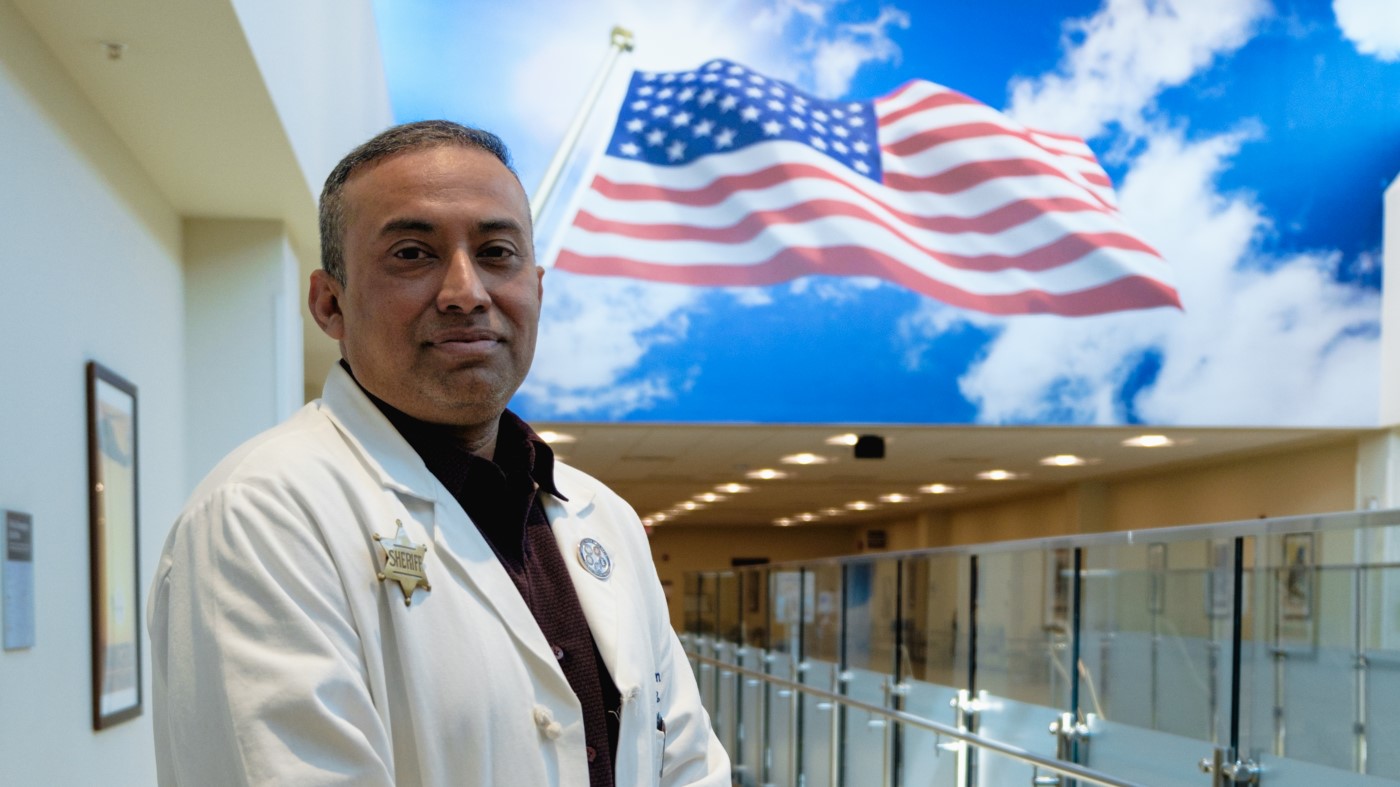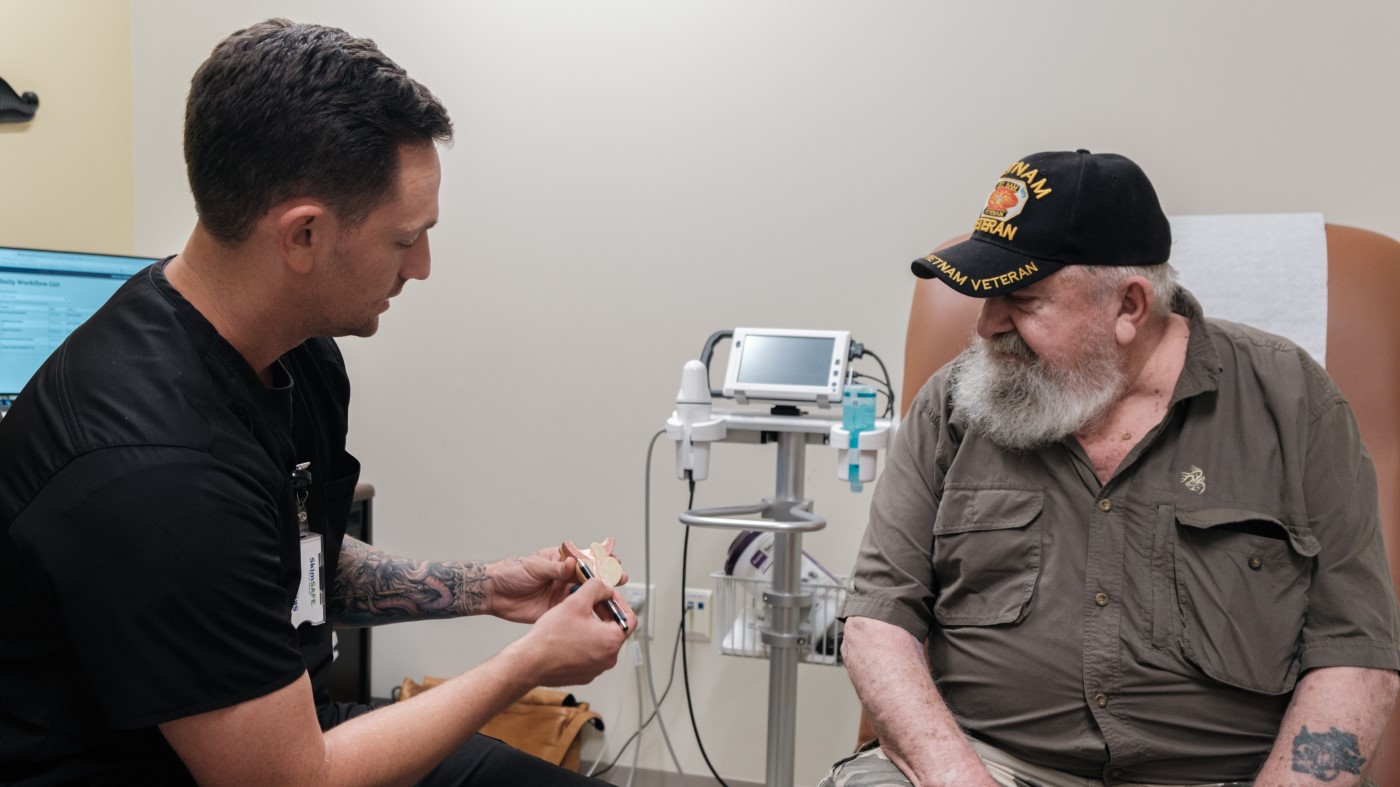Felisha Cooper had only been on the job as an advanced medical support assistant at VA for a few months when she received a life-changing phone call.
A Veteran with dangerously high blood sugar had become disoriented and was calling from the parking lot of G.V. (Sonny) Montgomery VA Medical Center in Jackson, Mississippi.
As Cooper gave him directions, she noticed that his alertness was deteriorating, and he had begun slurring his words. When he suddenly said he was going to “clear his head and go home,” Cooper calmly explained why he needed to stay.
“I was a bit anxious at first, but I knew I had to step into action for the safety of the Veteran. The conversation went from convincing him not to leave to calling out for help,” Cooper said.
Cooper remained on the line while her colleagues rushed outside to search. She was able to get information about his car to help the search party locate him.
“I heard screaming in the background, and heard they had found the car,” said Cooper. “The Veteran was unresponsive and slumped over the steering wheel.”
After being swiftly transported to the emergency department and admitted to the hospital for treatment, the Veteran has since made a full recovery.
To serve and protect
The daughter of an Army Veteran who worked at VA for more than 30 years, Cooper always knew VA was the place for her too.
“I just wanted to return the service to our Veterans,” Cooper said. “Our Veterans have served and protected our country, so we need to make certain that we are willing to serve and protect them.”
After caring for her father through his battle with amyotrophic lateral sclerosis (ALS), Cooper vowed that if she ever got a job at VA, she would take care of every Veteran with the same commitment.
“Working with Veterans, they become like family,” Cooper said. “Our clinic has become like my little work family.”
Providing critical support
Medical support assistants like Cooper are a vital part of the patient care team at VA, and this position is one of the most critically needed at VA, with hundreds of vacancies across the nation.
Essential to delivering high-quality care to the nation’s Veterans and their families, medical support assistants ensure that day-to-day operations flow smoothly by handling patient appointments, preparing for clinic visits, updating patient information, processing transfers and more.
Calling on advanced medical terminology and health care process knowledge, they collaborate with a range of health care providers, carry out tasks to ensure patient flow and provide patient care support.
For Cooper, who has a background as a patient care coordinator, empowering Veterans to become their own advocates is her favorite part of the job.
“The most rewarding thing I find is being able to help Veterans find answers and become advocates for themselves. Sometimes, educating on available programs and various tools gives them more freedom and control over their own health care,” Cooper said.
Work at VA
Discover how you can make a difference in the lives of Veterans as a medical support assistant at VA.
- EXPLORE current job openings.
- LEARN more about how to apply.
- FIND out about the benefits of a VA career.
Topics in this story
More Stories
Providing better outcomes for diverse Veterans means finding ways to reach them, whether on a personal level or on a geographic level.
As a chief of staff, you’ll have many important responsibilities, but also an opportunity to make positive change for our team and the Veterans we serve.
As a geriatrics specialist at VA, your work will have a huge impact on Veterans as they come to rely on VA’s care as they grow older.






